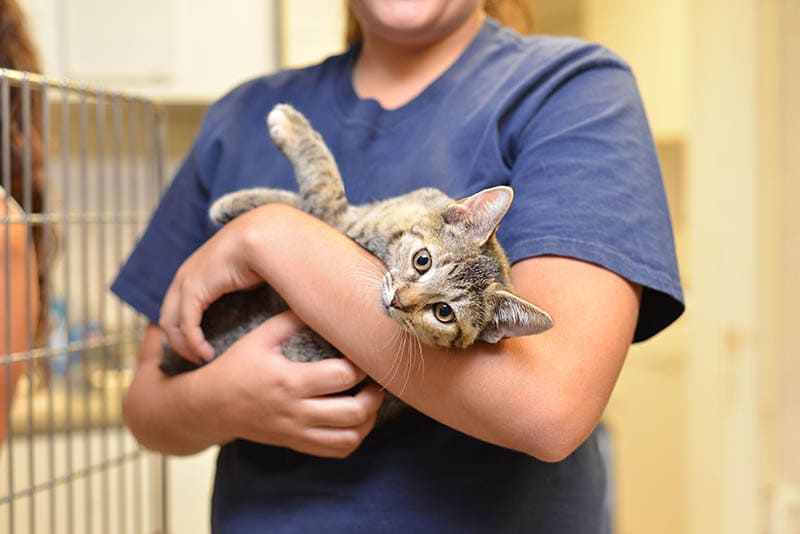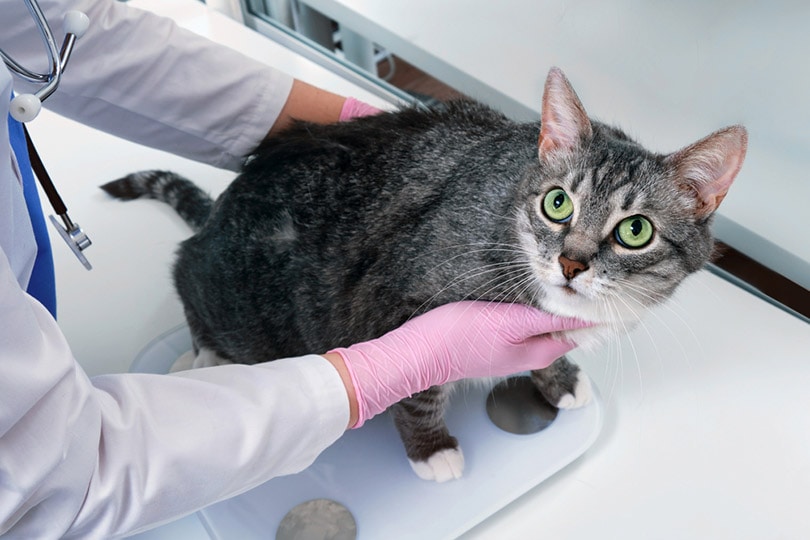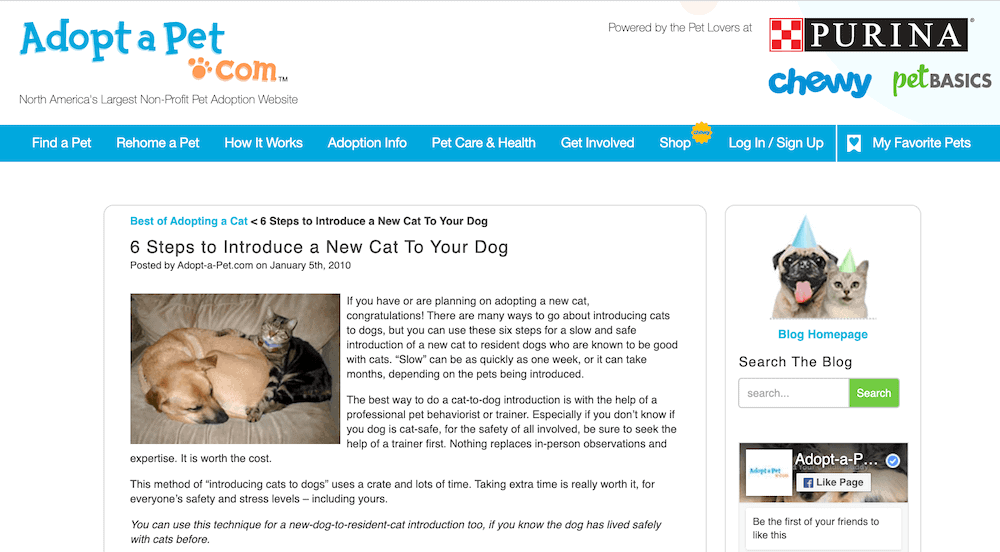
When we get our pets, we never think that we may need to rehome them. However, many situations may call for rehoming our pet.
Whether you’ve experienced a financial or medical upset, or maybe the requirements of your living situation have changed, there is sometimes very little you can do to avoid this heartbreaking situation.
When the time comes, there is a way to rehome a cat correctly. Your goal should be to find the best owner possible and limit the stress it causes to your feline. Any sort of major life change can seriously lead to a stressed-out feline.
The 7 Tips for Rehoming Your Cat in a Responsible & Humane Way
1. Reach Out to Your Local Animal Shelter

Yes, you can simply drop your cat off at your local animal shelter. However, some shelters have programs to help keep your pet out of the shelter. If you’re just having trouble purchasing food, some shelters may be able to help.
Many shelters can also point you towards low-cost veterinary care, in the case that you’re largely giving your pet up due to the inability to pay for veterinary bills.
There is also the opportunity to “foster” your pet while the shelter finds them a new home. Then, you won’t have to worry about your cat spending a day in the shelter.
While different shelters have different abilities, it is always best to call and ask. You never know what sort of help they’ll be able to provide you with!
2. Avoid Posting Classified Ads
Posting your pet on Craigslist or a similar classified ads system is not recommended. You also should never rehome your pet for free, even if you are desperate to find them a new home.
Often, pets adopted through Craigslist are used as baiting animals for dog fights. While your cat obviously isn’t a dog, they can still be used as “training.”
Black cats and kittens are the worst off, as they are often tortured. This problem is especially prevalent around Halloween when they are considered unlucky.
Hoarders, backyard breeders, and other criminal organizations may go after free pets on Craigslist. For this reason, we don’t recommend purchasing your cat on these classified ads at all.
3. Use a Pet-Matching Service
There are several pet-matching services that can help you locate someone looking for a pet. For instance, Adopt-A-Pet is probably one of the most common services.
Remember, you should never rehome your pet for free. We highly recommend always charging something. This will help you avoid scammers and criminal elements, as they often only look for free cats.
If someone isn’t willing to pay for your feline, they likely aren’t in a position to take care of a cat at all.
While using these pet-matching services is better than Craigslist, that doesn’t necessarily mean that they are completely safe. Always do your due diligence when finding a new home for your pet. Just because they’re on the service doesn’t mean that someone has double-checked to ensure they don’t mean your cat any harm.
4. Breed Rescues
If your cat belongs to a specific breed, you may be able to reach out to a breed-specific rescue. These often involve animal fosters, so your cat won’t end up in a shelter environment. At the same time, they are often pros on your cat’s specific breed and may be able to find them a new home much faster.
Even mixed breeds can often be accepted by these breed rescues.
If your cat is simply a “cat,” then you may be able to find a cat-specific rescue near you. These are often faster-based, again, so the stress put on your cat is far less than it might be with a traditional shelter.
These organizations often have a very limited intake, though. Because they don’t have a shelter building, it depends on the number of animals their fosters can take!
Once they reach capacity, they simply can’t take more animals until they have adopted some others out. There may be a waiting list, or some rescues may not take owned animals at all. There are quite a few that focus on feral animals alone.
5. Have All Veterinary Records on Hand

You should have all vet records on hand before turning over your pet to anyone. Often, spayed and neutered cats are more likely to be chosen by a new owner since they require fewer start-up costs. Be sure to provide vaccination records as well.
If your cat doesn’t have vaccination records, they will likely be re-vaccinated for their own safety. Most rescues and shelters won’t simply take your word for it!
6. Advertise Through Your Network
Sometimes, you can find a suitable owner simply by spreading the news around to your friends and family. Someone may know someone looking for a cat. Most through social media and ask your friends to be on the lookout for anyone searching for a cat.
Often, vets will also allow you to advertise in their offices. They may know someone looking for a new animal.
You can also place flyers around your work, school, or church. Most of these organizations will allow you to post advertisements for cats.
Of course, be sure to do your due diligence before you give your cat to some random person. If a close friend decides to take your cat, you probably don’t have much to worry about. However, if you get much more removed than that, be sure to do your research before handing your cat over.
We often want to think that people have our best interests in mind, but that isn’t always the case.
7. Always Screen

If you leave this article with only one tip, it should be to always screen adopters. There are abusers and dogfighters out there that are looking for free pets. Don’t let your cat be one of them.
You should charge a small fee at least, as this will filter you out of most of these criminals’ searches. However, you should still screen everyone who asks about your feline.
Visit their home before you turn over your feline. Look for red flags, like if someone doesn’t actually ask many questions about your cat. Wanting to take your cat “right away” can also be a red flag. Most responsible owners will ask plenty of questions before they decide to take your cat or not.
You can also ask for veterinary records for current pets they own. If they don’t have them, you may want to reconsider letting them care for your cat.
Vet checks are probably the most important screening procedure. After all, most criminals (including dogfighters, hoarders, and abusers) don’t take their animals to the vet. If the applicant has a pretty good record with a vet, then they are likely a good option for your feline.
- You might also be interested in: 5 Types of Cat Personalities: Which One Is Your Cat?
Final Thoughts
Rehoming your cat is never a pleasant experience, but sometimes it is absolutely necessary for your feline’s wellbeing. Sometimes, lives evolve in ways we can’t expect, and we can no longer take care of our cats.
If you find yourself in a situation where you have to rehome your cat, there is a right way to do it. Screening potential candidates is quite important, as it prevents potential abusers from getting hold of your cat.
You can potentially find your cat’s new home from many different sources. Rescues are always a solid option. Your friends and family may also know someone looking for a new cat.
Featured Image Credit: Ann Kosolapova, Shutterstock






